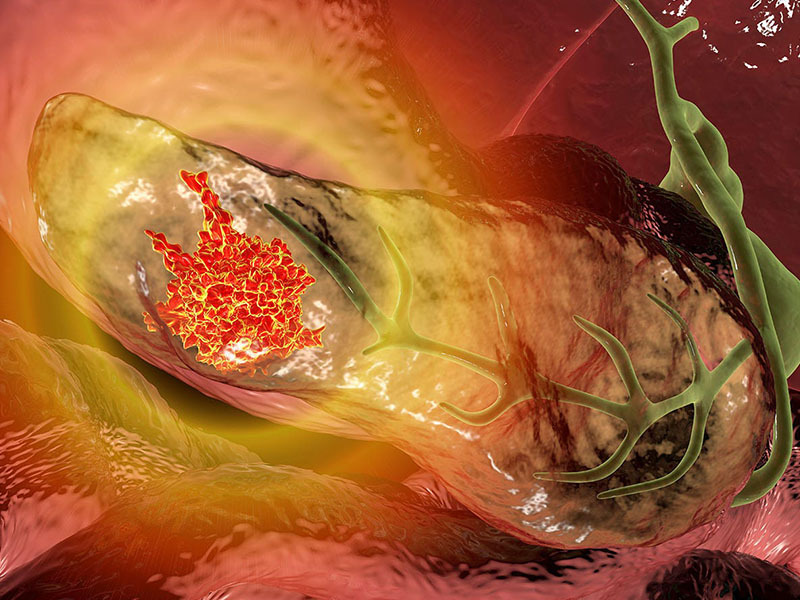Pancreatic tumors
Pancreatic tumors
Pancreatic tumors are of two types, benign and malignant.
They are categorized as:
- Adenocarcinoma,
- Neuroendocrine tumors
- Cystic neoplasm.
Pancreatic adenocarcinoma
Pancreatic adenocarcinoma is the most frequent tumor of the pancreas.
Risk factors
- Cigarette smoking
- Chronic pancreatitis
- Tobacco chewing
- Genetic mutations
Symptoms
- Pain in the upper abdomen
- Jaundice
- Weight loss
- Loss of appetite
Diagnosis
Tests recommended in patients with suspected adenocarcinoma are
- Endoscopic ultrasound and fine-needle aspiration are the tests for confirming the diagnosis
- Ultrasonography abdomen
- CT scan
Treatment
- Surgical resection is the most suitable option. However, resection can be performed in only 20 % of tumors.
- Other treatment modalities include chemotherapy. Placement of stent in common bile duct relieves jaundice and in duodenum used for preventing the vomiting attack.
Neuroendocrine tumors
Neuroendocrine tumors develop from islet cells, categorized as:
- Insulinoma
- VIPoma
- Gastrinoma
- Non-Functional tumor
- Somatostatinoma
Symptoms
Symptoms of this tumor vary according to the tumor type and the hormones that are secreted.
Common symptoms include:
- Recurrent ulcer formation
- Diarrhea
- Hypoglycemia
Treatment
- Primary treatment is surgery
- Chemotherapy and somatostatin analogue indicated in case of metastatic diseases
Cystic neoplasm
Cystic neoplasm is mostly detected by an incident. It needs to be differentiated from pseudocysts.
The most common type of cystic neoplasm includes:
- Serous cystadenoma
- Mucinous cystadenoma
- Solid pseudopapillary neoplasm
- Intraductal papillary mucinous neoplasm (IPMN)
Symptoms
- Small lesions are usually asymptomatic and assessed by imaging
- Large lesions can cause pain or jaundice
Diagnosis
Diagnostic tests include:
- Ultrasonography of the abdomen
- CT scan of abdomen
- EUS is recommended for diagnosis and differentiation. Cyst fluid is aspirated for analysis
- Disease is confirmed with the help of imaging modality such as Endoscopic ultrasound or by performing FNAC
Treatment
- Small asymptomatic lesions require regular monitoring
- Large or symptomatic lesions require resection

